A former Takarazienne’s struggle to become the wife of the former most winning pitcher.
The Second Careers of the Eternal Fairies of Takarazuka University in the East and Takarazuka in the West
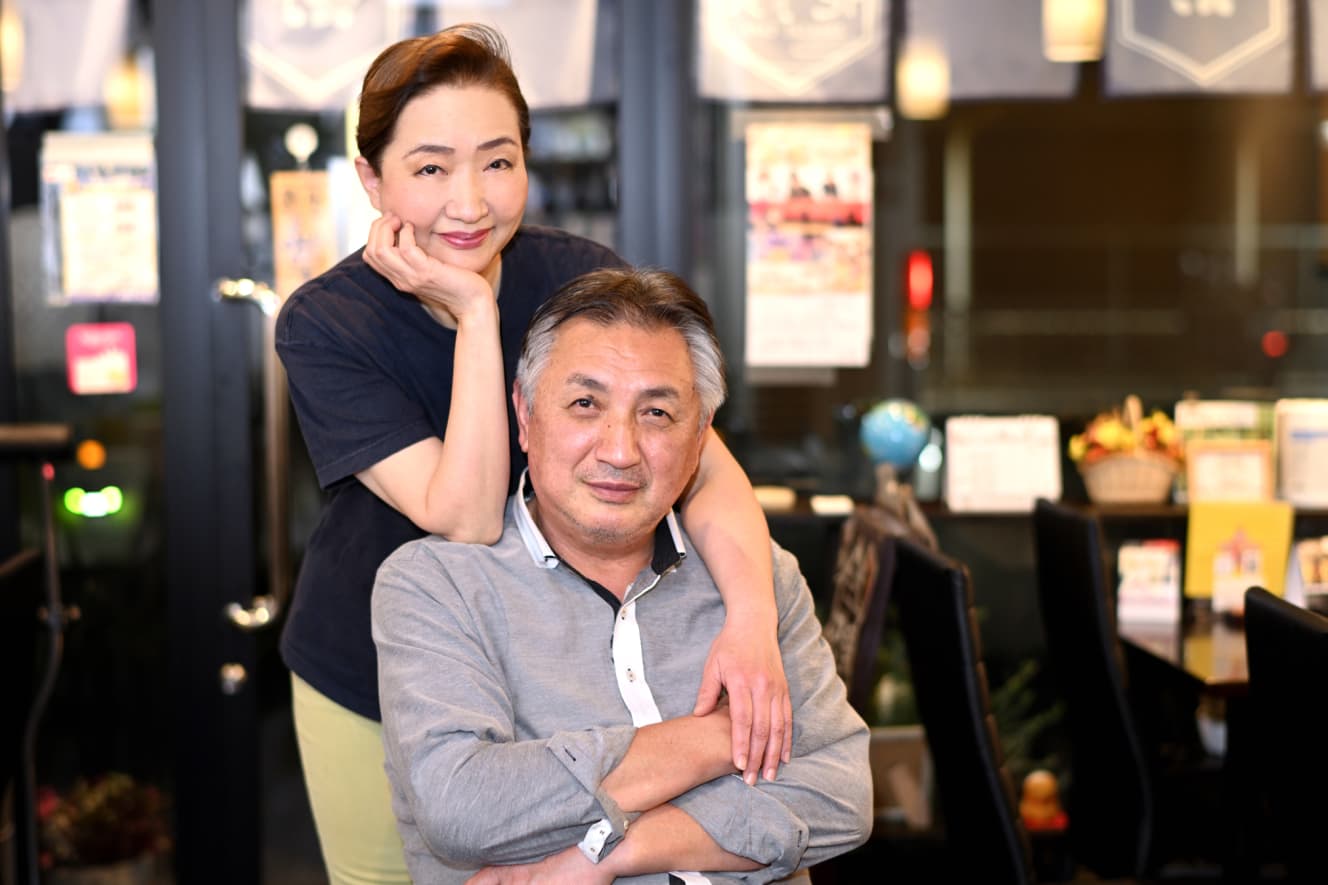
Aki Shirakawa, a member of the 65th class of Takarazuka Revue, joined the company in 1979 and was a male star of the Tsuki group. She left Takarazuka after her marriage to Yukihiko Yamaoki, who was the best relief pitcher for the Hankyu Braves in 1984 and the pitcher with the most wins in 1987 with 19 wins. After her husband retired, she became a bartender and now runs “Obanzai Cafe Hanauta” with her husband. We asked her to look back on her life to date.
Marriage” was snubbed before reporting to the opera troupe
It is a well-known fact that “male-female relationships are forbidden” when it comes to Takaraziennes. In such a situation, did she go ahead with her relationship with the 191-cm-tall, well-built Yamaoki pitcher, who stands out wherever he is, and did they end up getting married?
Riseyo Satsuki, one of my classmates, was the catalyst for our relationship. She was a fan of Bobby Marcano of the Hankyu Braves. I used to go to baseball games with her when she went to the stadium. She told me it would be more fun to find someone to root for, and the one who caught my eye was Yamaoki, who was a rookie.
At the time, Riseyo Mayuki had a series of articles in Hankyu Train magazine, interviewing baseball players, so she had some interaction with them. After a game, there was a dinner party with the players and several Takarajennes, and it was there that they met.
We were the only ones who got married (laughs). From that time on, Yamaoki was a good listener and not the type to assert himself. We felt comfortable and relaxed together. Since it was a dinner party with many people, it didn’t develop into a relationship, but I once went to the airport to see him off on an expedition, and that’s when he became aware of me.
Since the two were both busy, they would meet only twice a month, and they developed their love by making phone calls from a pay phone in their dormitory to Yamaoki’s dormitory with a stack of 10-yen coins. It took two years and eight months from the time they met until they were married, but around the end of the second year, Koji Minoda, an outfielder for the Hankyu Braves, told them that they should get married as soon as possible.
At the time, it was the norm for baseball players to retire around the age of 32. As Mr. Yamaoki’s time limit to stay in the dormitory was approaching, he decided to get married and was in the process of making arrangements to report to the Takarazuka Revue when the marriage was reported on the front page of some sports newspapers. Naturally, the people involved were upset because they had not yet reported the news to the revue company. He recalls that he had no choice but to apologize flatly. However, after talking to the Takarazuka Revue, they understood their relationship and held a press conference. The engagement press conference was also arranged at a Hankyu Group facility.
At that time, it was customary for baseball players to hold their brides-to-be in a princess’s arms,” Takarazuka said. But I was a male Takarazienne, so I couldn’t ask her to do that…so I didn’t (laughs). The wedding was very festive, and we celebrated for four hours in the Murasaki Room at the New Hankyu Hotel.
After her marriage, she became a stay-at-home housewife to support her husband. When she first got married, her performance was a little sluggish, and she was sometimes heartbroken when slanderous letters began to arrive at her home, with content such as, “Maybe it’s because you got married. Ms. Shirakawa was so concerned about her husband’s baseball performance that it made her sick to her stomach, but she made it a point never to meddle in his affairs.
My husband was not supposed to bring baseball back to our house,” she said. So I can’t talk about the fact that I received such a letter. It was hard and frustrating to receive such letters, and I felt I had to do something to help him win. But I couldn’t do anything about it, so I prepared his favorite dishes, such as kenchin soup and dried horse mackerel, to make him feel at least a little bit better when he came home.
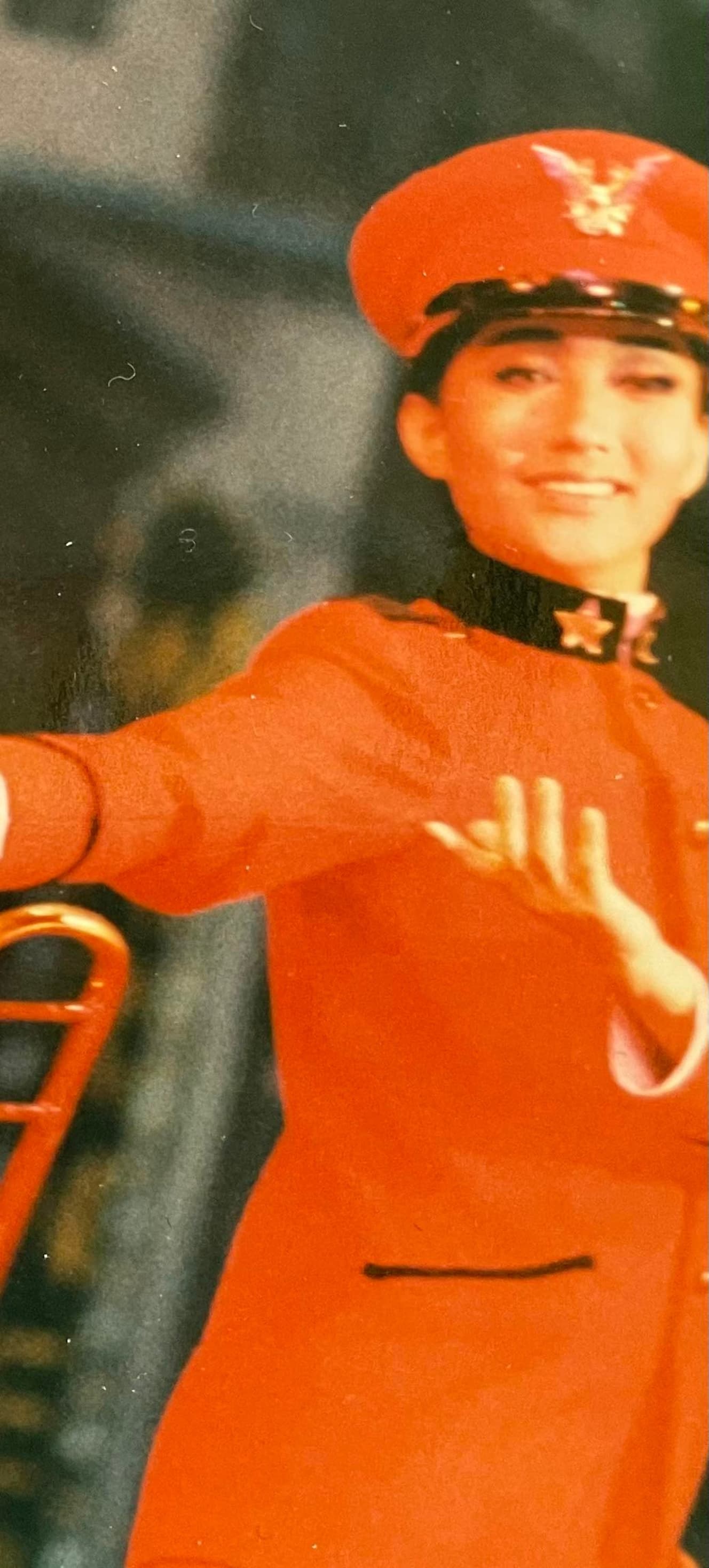
I asked Mr. Yamaoki, who was present for the interview, what he thought was good about having Ms. Shirakawa as his wife.
She replied, “When I go on an expedition, I mainly cook meat dishes. When I came home, I was happy to have Japanese food prepared with vegetables. The children ate a lot of vegetables, and above all, I am grateful to my wife for helping them grow up safely even though their father was often away.
When the slander over baseball continues, Mr. Shirakawa is frustrated and distressed that he cannot do anything about it. She had one son and one daughter, and devoted herself to housework and child rearing.
She said, “I am not a dexterous person to begin with, so I felt that it was impossible for me to support my husband while doing what I love to do. I thought I had been given the job of “wife of a baseball player. I cook mainly Japanese-style meals and protect the home so that my husband can play an active role. I wanted my children to be able to do what they wanted to do, so I made sure to take them to and from their lessons. At that time, I didn’t think I had to do anything else I wanted to do. I felt comfortable in the relationship that we all had to raise our children with the help of those around us. Many of my friends from Takarazuka got married around the same time and had children around the same age. It was fun to have dinner together.
Ms. Shirakawa loved kimonos, and after Mr. Yamaoki retired from professional baseball, she took a kimono dressing class for four and a half years to become certified. Today, she still holds dressing classes and gives lessons in “Japanese dance with Western music” with Ms. Mayuki, who helped her meet her husband. Their Japanese dance to Latin and JPOP music has a wide age range of fans, from junior high school students to a 95-year-old lady. Kimono dressing and nihonbu dance were an extension of her hobbies, but Ms. Shirakawa has also worked as a bartender for 13 years.
Around 2002, when my children had grown out of school, I was asked if I wanted to become a bartender. I wanted to earn my own money and I was interested in cocktails. I worked as a bartender at the Takarazuka Hotel for 13 years. I realized once again that the smiles of customers bring me joy.”

Mr. and Mrs. Shirakawa’s “Purpose in Life Today
Their eldest son started his own restaurant as a Japanese chef. Their eldest daughter, like her mother, has gone on to become a famous Japanese actress, Takarazienne. The couple’s educational policy of “supporting what the children want to do” has not wavered since they were young children. This is because both Shirakawa and Yamaoki are grateful that they have been able to live their lives doing what they love.
When their eldest daughter, who had thought she had no interest in Takarazuka, suddenly expressed her desire to join the company in January of her third year of junior high school, they supported her in her application, knowing that the world is not easy. Although she only had two months to prepare, she was able to pass with flying colors thanks to her ballet and piano lessons she had taken since childhood.
Her eldest son, who ran a Japanese restaurant, got married last year. He decided to train at his partner’s family textile company. Of course, he never lost his support for his son’s decision.
When we talked about what to do with the restaurant that my eldest son had started, we decided that since he had taken the trouble to start the restaurant, we would take it over and run it. It was more like the environment always comes to us. We have been doing this by letting the currents and possibilities take us where they wanted us to go.
The dishes served at “Obanzai Cafe Hanauta” in Kobe City, Hyogo Prefecture, are the same home-style dishes that made Mr. Yamaoki so happy and saved his life so many times during his working years. Some of the customers are young women who eat only convenience foods, and the satisfaction of such customers is what makes Shirakawa and his wife’s life worth living.
We like to have a table lined with obanzai dishes, so we serve home-style dishes to people who live alone and want them to enjoy comforting meals. There are people who come to our restaurant every day. It makes me happy to see their empty plates. We are blessed with people. I’m having so much fun at the restaurant now! I feel like I have to work hard.
The legend that one can become a good wife by working at Takarazuka must be based on the history of former Takarajennes who, like Ms. Shirakawa, have built warm families.
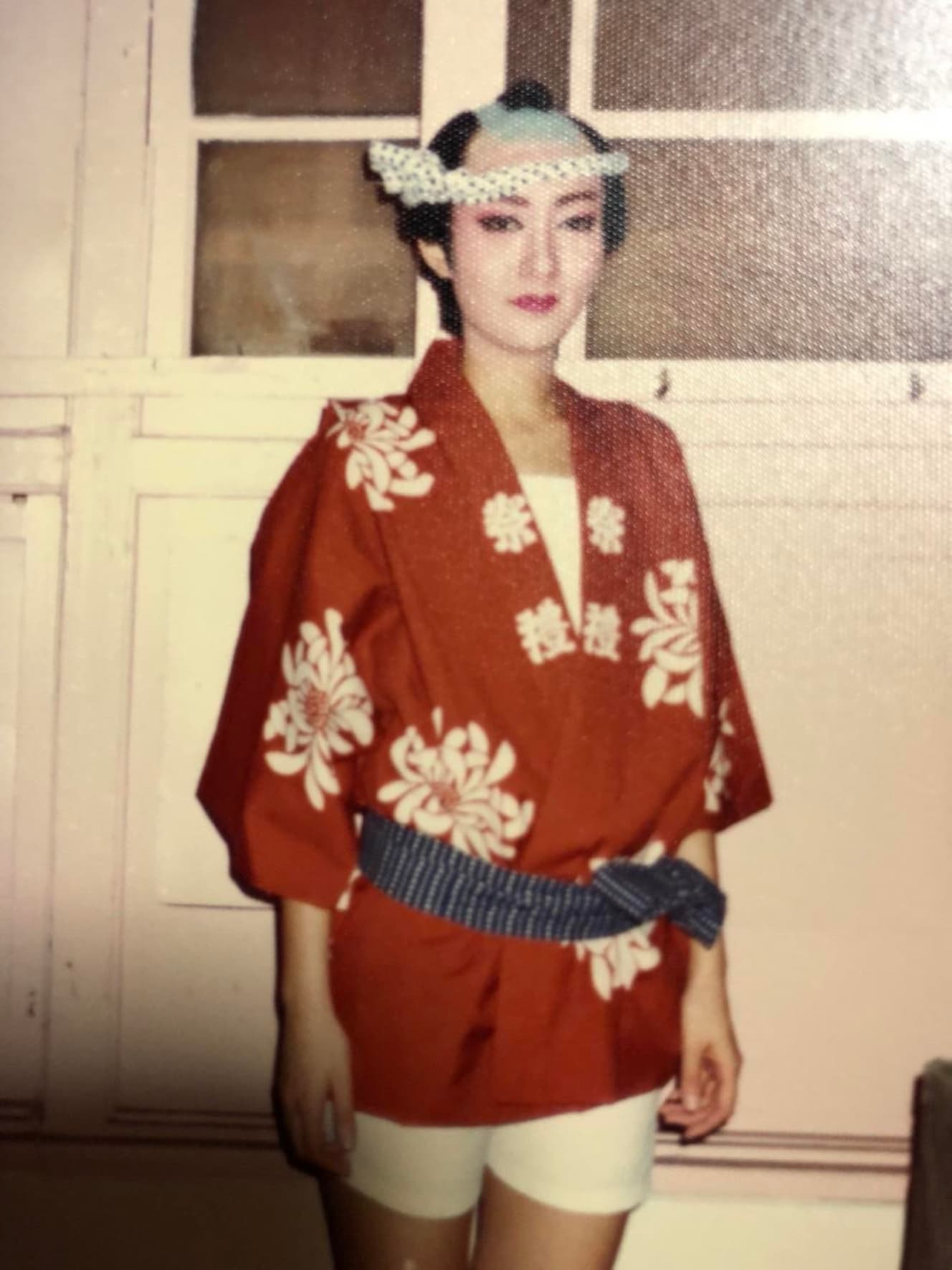
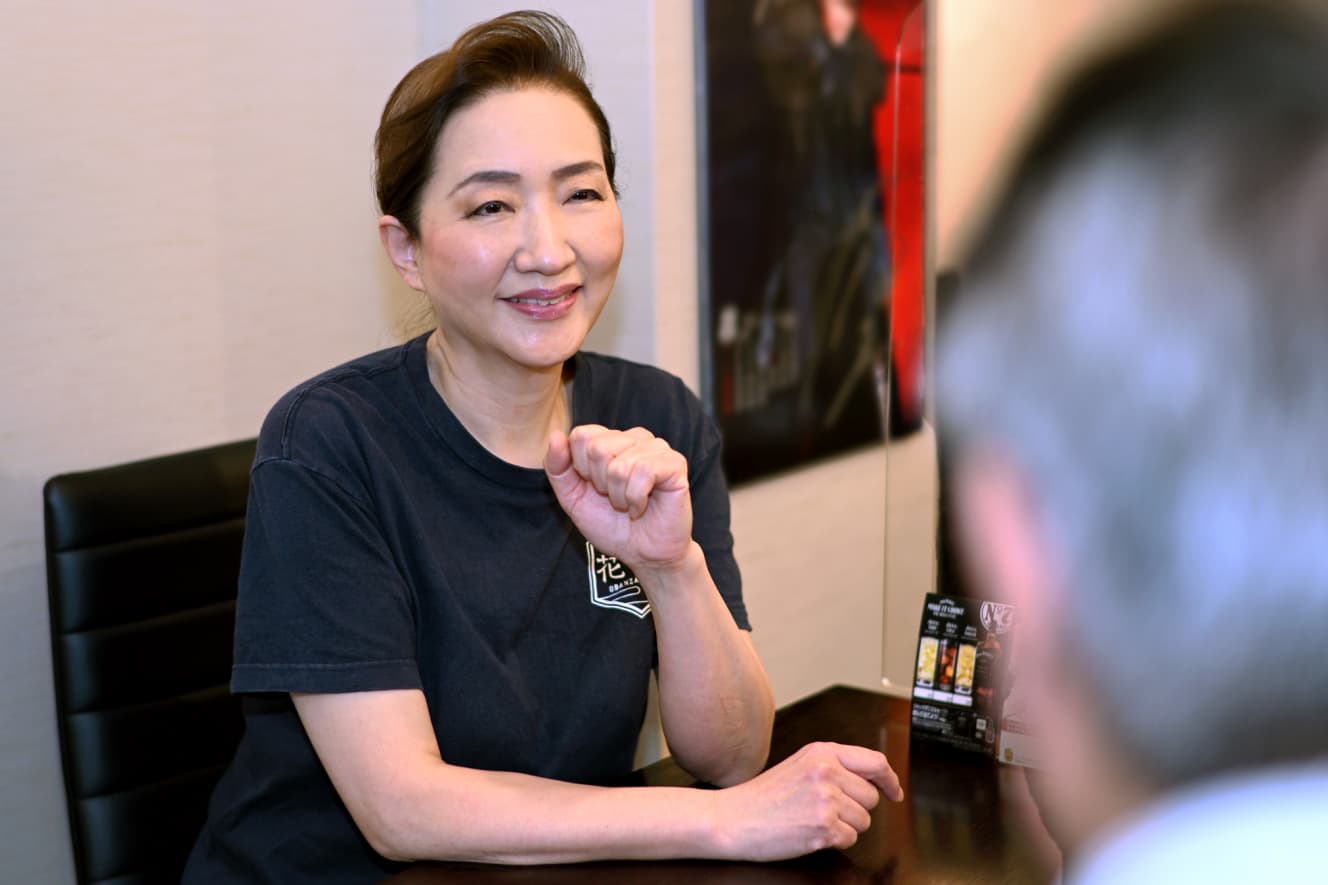
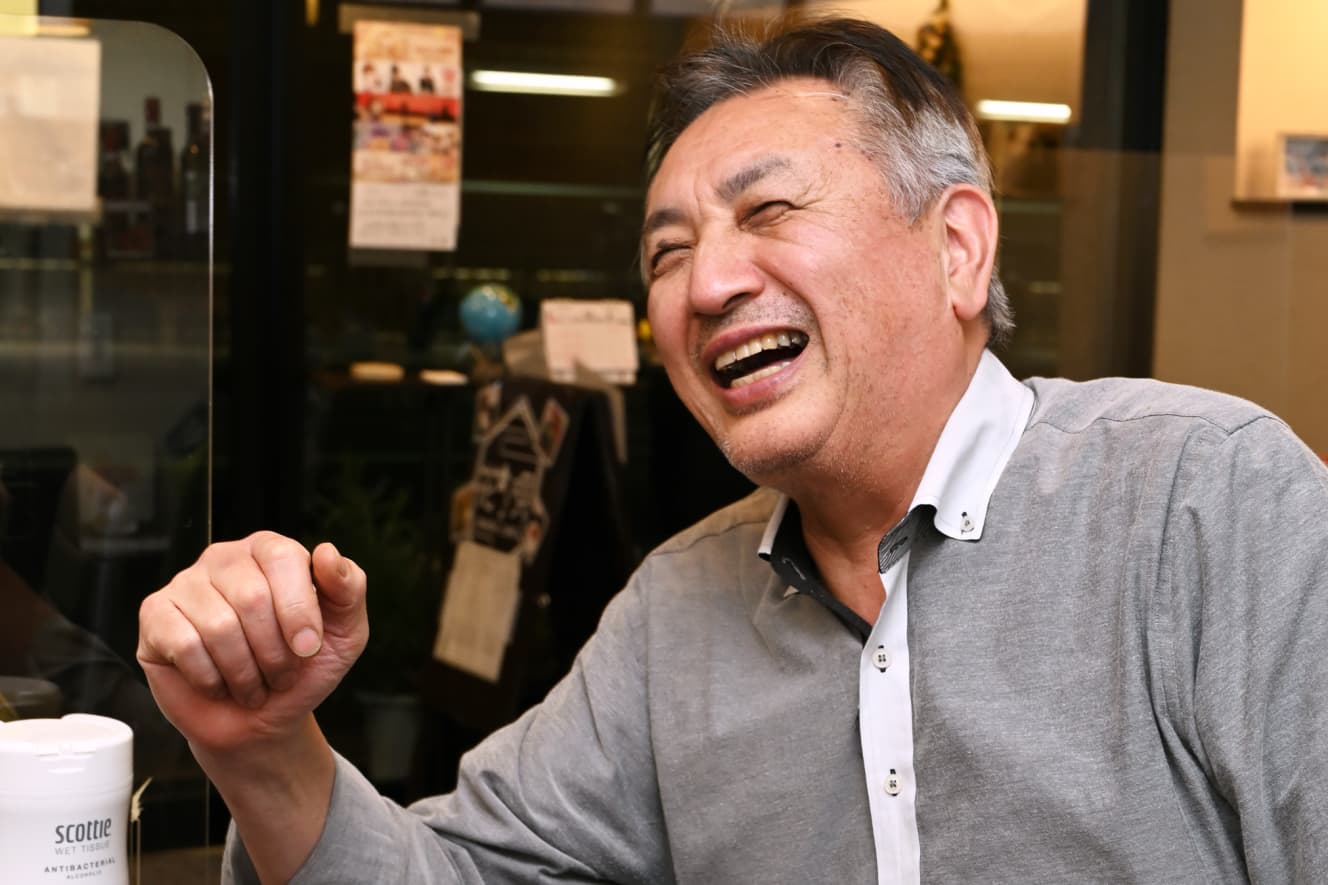
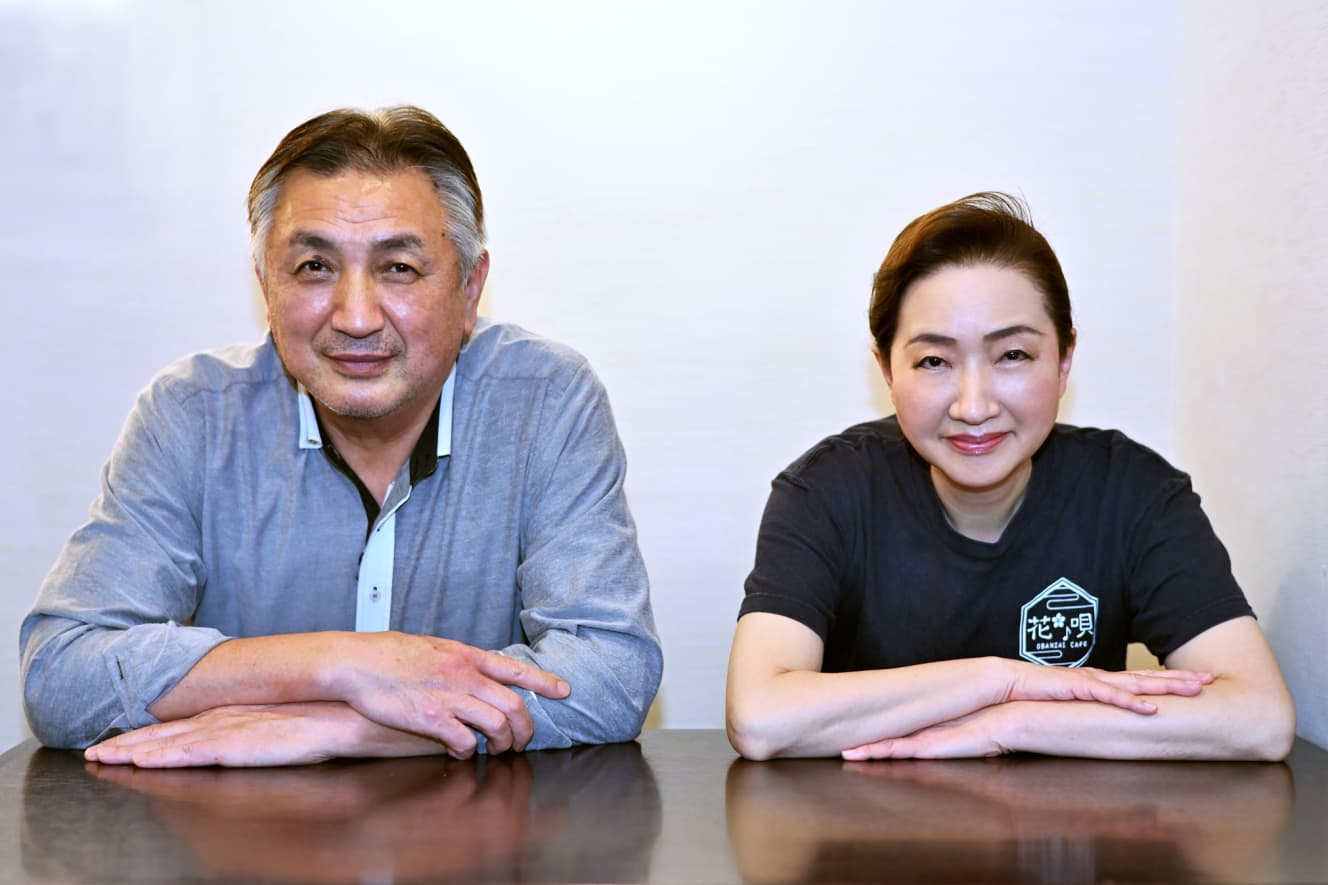
Interview and text: Natsuki Uegami
(Natsuki Uegami is a writer and beauty planner. She is a mom writer with a unique background, having performed as an actress in Yoshimoto Shinkigeki at Lumine the Yoshimoto. She has written articles on beauty, travel, and interviews for many magazines and websites. She is also involved in product development for cosmetics and other products, and appears on a live TV shopping program. Her hobby is watching Taiwanese TV dramas, and she is fluent in Chinese (HSK level 5). She dreams of a two-location life in Taiwan.
Photography: Shoko Sugiura